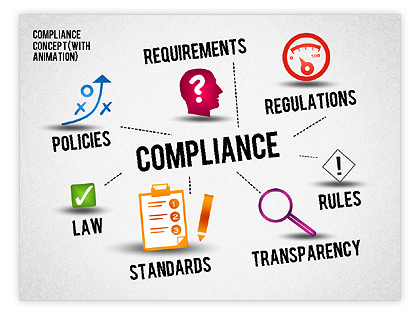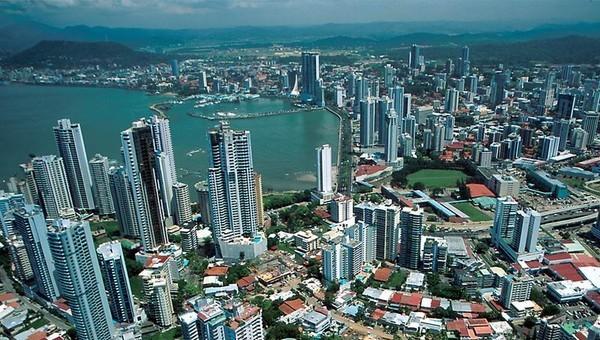Puerto Rico Bank License Compliance Requirements
An international bank licensed in Puerto Rico must comply with all US compliance requirements. All Puerto Rico Act 273 banks must keep detailed records of account holders, and comply with all Know Your Customer (KYC) and Anti Money Laundering (AML) rules.
In a recent post on Bloomberg, the author implies that non-US persons can open accounts at Puerto Rican International Financial Entities (IFEs) anonymously through the use of an offshore corporation. This is completely false.
All US KYC and AML rules apply in Puerto Rico. All Puerto Rican IFEs follow the standards prescribed by the FDIC (even though none are insured by the FDIC). For more information on FDIC requirements, see: Bank Secrecy Act and Anti-Money Laundering
During the licensing and launch of these international banks licensed in Puerto under Act 273, great attention is paid by government regulators (OCIF) to the KYC and AML procedures of the IFE. There is no way a bank that doesn’t follow standard procedures will be issued a license. It will be a cold day in hell before an IFE is allowed to operate without collecting information on its account holders.
More importantly, OCIF audits these entities regularly to ensure full compliance. Running an IFE from Puerto Rico is very similar to running a bank in California. The major difference is that an IFE pays only 4% in tax vs. nearly 50% in California (Federal and State).
Even with proper KYC and AML compliance, an account in Puerto Rico (or in the United States) offers non-US persons significant asset protection and privacy. Because IFEs in Puerto Rico are specifically designed to offer services to international clients, opening a account at an IFE is good option compared to the larger banks in the US who can’t be bothered with all the reporting required on these accounts. Most US banks don’t have the necessary processes and procedures in place to vet foreign accounts. On the other hand, IFE’s have spent millions on IT to be able to efficiently vet international customers.
One reason for this popularity is that the United States, and Puerto Rico by extension, has not signed on to the Common Reporting Standard global tax compliance program. The Common Reporting Standard (CRS) provides for the automatic exchange of tax and financial information between 100 countries.
The intent of CRS is to force “tax havens” such as British Virgin Islands, Cayman Islands, and Panama (2018) to report all accounts to member states. That is to say, CRS was put in place to force reporting and compliance of cross border transactions between low tax and high tax jurisdictions.
Because the United States has not signed on to CRS, accounts in the US territory of Puerto Rico will not be automatically reported. Considering that the United States started the compliance push with FATCA, some consider its failure to sign onto CRS a bit hypocritical, but we’re apparently to busy making America great again to give a damn what Europe thinks.
Thus, non-US persons have increased privacy and protection in Puerto Rico compared to other offshore jurisdictions. But this is a very long way from IFEs allowing old school anonymous accounts. It’s a fact that no international bank in Puerto Rico will permit anyone to open an account using an offshore corporation without disclosing the ultimate beneficial owner and thoroughly vetting that person’s source of funds.
Yes, non-US persons should open their IFE account under an offshore corporation. The reason for this is that the foreign entity gives you asset protection and privacy. This is NOT done to hide your identity from the bank… it’s so that only you and your banker know who owns the structure. It’s to protect your privacy while, at the same time, allowing the IFE to be fully compliant with US AML and KYC requirements.
I should also point out that IFEs in Puerto Rico must comply with all IRS reporting requirements. Because IFEs don’t usually accept US persons, few have any interaction with the Service. If your IFE does open accounts for US persons, it will have US reporting requirements.
Again, the CRS loophole in Puerto Rico is not the doing of the government of Puerto Rico. It’s the result of US policy that flows down to the territories which have to accept what’s mandated from the mainland. International banks structured in Puerto Rico must comply with all US BSA, KYC, and AML policies. If the US is not a party to a treaty (such as OECD’s CRS), then that treaty doesn’t apply to banks in its territories.
I hope this article on Puerto Rico banking license compliance requirements helps. For more, see: International Financial Entities Licenses in Puerto Rico. For the basics of setting up an IFE as an offshore bank, see: Lowest Cost Offshore Bank License is Puerto Rico.
If you’re considering forming an offshore bank, see: The 8 Components of an Offshore Bank License and take a read through Top 5 Offshore Bank License Jurisdictions for 2017.
We’ll be happy to assist you negotiate a banking license in Puerto Rico. We are the only firm providing a turnkey package and can assist you throughout the process. Please contact us at info@premieroffshore.com or call us at (619) 483-1708 for more information.












Leave a Reply
Want to join the discussion?Feel free to contribute!